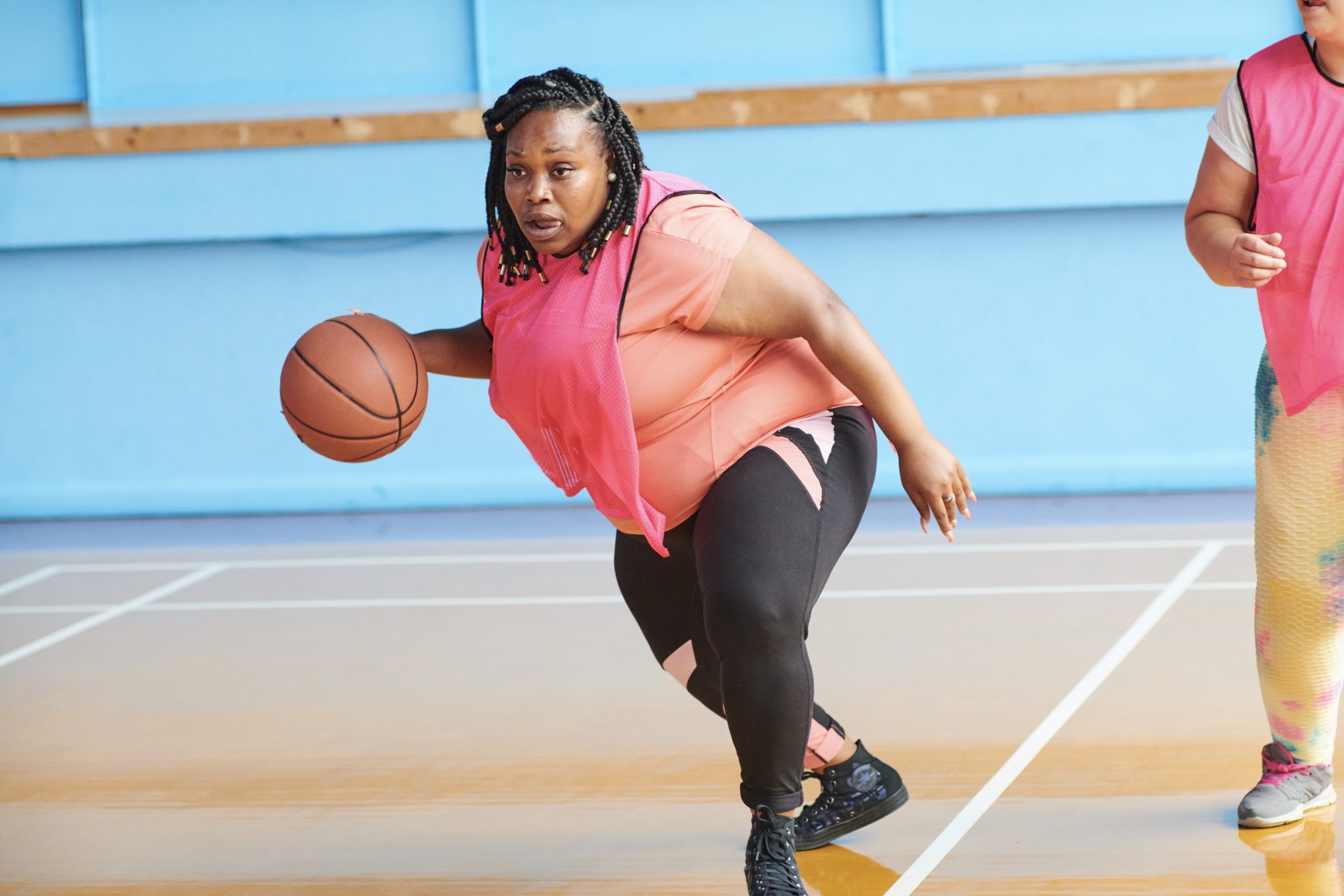Whether or not a workout goes to plan, exercise has benefits we can’t measure in figures. Here’s why “bad workouts” are a myth.
It doesn’t matter whether you’re a fitness pro or an exercise newbie, we all have those days when it feels like we haven’t performed at our best during a workout.
Whether it’s just missing out on a running time, struggling to lift your target weight or slipping out of crow pose, there are times when it feels like we’ve not met our goals.
Even if we’re well-rested after a good night’s sleep, eaten well and done all the right things in the build-up to a session, there are always days when things don’t go our way and it feels like we’ve had a bad workout.
You may also like
Barre workout: why everyone fell in love with the pilates and ballet fusion during lockdown
The phrase “bad workout” is everywhere: a quick Google search brings up scores of advice about how to avoid them. But, perhaps we’re looking at exercise in the wrong way?
Yes, it’s possible to get into bad fitness habits, which can mean our workouts aren’t safe and this needs addressing, but the idea of having a bad workout because a session hasn’t gone the way we hoped or we struggled through it is a myth.
Why? Because exercising, whether it goes to plan or not, has myriad benefits that we can’t see or measure in figures.
“The whole theory behind a bad workout is often due to workouts perhaps not being as good as you may have expected,” says fitness and lifestyle coach Ryan Hodgson at Hodgson Fitness. “However there really is no such thing as a bad workout. Something is better than nothing.”
“As long as you are taking rest days to allow your muscles to heal, there’s really no such thing as a bad workout,” explains Sas Parsad, founder of The Gut Co. “Even if you only manage 10 minutes of walking on a treadmill, it’s still better than no exercise at all. Being too hard on yourself can reduce motivation completely, so give yourself a break and live within your capabilities.”
Just by lacing up our trainers and getting active, we’re already doing our bodies and minds the world of good, even when it feels like a session hasn’t gone quite the way we wanted.
“The research into the benefits of exercise has been extensive and in-depth for decades,” explains body and mindset coach Adam Grayston. “Exercise isn’t a miracle cure, but the benefits have been proven time and time again to have a positive impact on our lives, including our careers and our relationships.”
The unseen benefits of exercise that prove there’s no such thing as a bad workout

Cardiovascular health
As we all know, when we exercise we force our bodies to work harder, which means our heart muscle needs to beat faster to pump blood and oxygen around our bodies more efficiently, which is why our heart rate goes up when we work out. Every time we exercise, we work our heart muscle and make it stronger and more forceful. This is why the fitter you are, the lower your heart rate when you exercise – because it doesn’t have to beat as frequently to get blood pumping around our body.
“Exercise strengthens your heart muscle, so over time it doesn’t have to beat as many times per minute, which in turn helps it to relax more each day, lowering your blood pressure,” explains Grayston.
Blood sugar control
When we eat the glucose level in our blood rises. To try to lower it, we release a hormone called insulin. As we get older, this blood sugar control mechanism can weaken and some people can get type 2 diabetes. Regular exercise has been shown to improve blood sugar control and improve your risk of getting diabetes.
“Patients newly diagnosed with diabetes are given a two-week period to alter their diet and take up exercise and you can actually reverse type 2 diabetes in the early stages,” Dr Frankie Jackson-Spence explains, in an Instagram video. “So, exercise is a really useful tool in the prevention and management of prevention of type 2 diabetes.”
Bone strength
Regular exercise not only works out our muscles, but also our joints, which means it’s extremely good for strengthening our bones. Women, in particular, are at risk of weakening bones, or osteoporosis, as we get older. “Regular exercise works well with resistance and can strengthen our bones and reduce the risk of osteoporosis and fractures later in life,” explains Dr Jackson-Spence.
Neurogenerative health
“Exercising regularly is one of the best things you can do to help protect yourself against developing dementia,” says Dr Emer MacSweeney, CEO and consultant neuroradiologist at Re:Cognition Health. “Exercise is thought to encourage brain cell growth and survival, so it is essential in helping protect against developing dementia.
“Incorporating aerobic exercise into your weekly routine will help reduce the risk of developing dementia. Exercising vigorously three times a week for 20 minutes or moderately five times a week for 40 minutes is recommended.”
Lower stress levels
“Stress and sedentary jobs can cause our bodies to tense up and we can spend a lot of time in our minds, stewing over little things that become monstrous as the days or weeks go by,” explains Grayston. “Exercise allows you to channel your energy into your muscles and the exercise you’re taking part in, essentially shifting your mind into your body, increasing feel-good endorphins, releasing built-up stress and giving you a new focus.”
Mental resilience
Whether it’s a 10-minute leg workout or a 45-minute run, exercise pushes and challenges your body and mind to complete a session every time you do it. “The physical sensation of your body under stress and being able to stay relaxed and focused until you finish, means that over time you’re building mental resilience and you’re able to manage your day-to-day feelings of stress better,” explains Grayston.

How to feel more positive about exercise
If you find yourself regularly thinking that you’ve had a bad workout or thinking negatively about your exercise performance, it might be worth changing up your exercise routine.
“Finding an exercise activity we love helps with motivation, consistency and with establishing a sustainable exercise routine,” says Paola Langella, founder of Shapes Studio.
“Exercise, like nutrition, is bio-individual. You need to understand and listen to your body’s preferences. If you are a morning person, try to incorporate a small workout before you begin your day. Or if you feel like your energy level decreases in the afternoon, you may want to consider taking a break and going for a quick walk to refocus your mind. Just listen to your body and work around your unique lifestyle.”
Want more workout inspiration? Check out the Strong Women Training Club
Images: Getty
Source: Read Full Article
